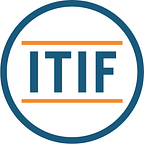By: Robert D. Atkinson
While Vladimir Lenin relied on various means to advance the global communist revolution, including spies, foreign communist parties, and fellow travelers, he also famously took advantage of “useful idiots”: individuals who, without knowing or even intending to do so, advanced ideas favorable to the Soviet cause. These became “echo chambers” in the West to rationalize the Kremlin’s actions.
Fast forward to today, and we see a disturbing number of leading scholars in the West playing a similar role, but for China. Critical to China’s continued success is its ability to obscure what it is doing vis-a-vis its economic, trade, and technology policies to make enough leaders in the West consider it to be legitimate and not an outlier. The reality, as my ITIF colleague Stephen Ezell documented in a recent report, is that China comes nowhere near to living up to the promises and obligations it made in joining the World Trade Organization. And when it comes to advancing its technology economy, China has doubled down on a vast array of unfair “innovation mercantilist” practices that are a drag on innovation in the rest of the world. The CCP will do virtually anything to hide the true nature of its policies.
Fortunately for them, there are a number of scholars who presumably inadvertently provide the CCP with the cover they so desperately seek. Case in point, UK economist Mariana Mazzucato who is quoted in The Wall Street Journal, saying with respect to Chinese technology policies: “That’s not communism. That’s exactly what the U.S. did.” Columbia University economist Jeffry Sachs, who The Globalist’s Stephan Richter calls a “Xi Propagandist,” says, according to The Wall Street Journal, “Beijing is investing in itself to advance technologically, as the U.S. has done, and concerns by American politicians that this is unfair are ‘hugely overblown, inaccurate, naive, and unprincipled.’”
First, to equate what the United States did over the last 70 years to support its technological advance to what China is doing is either based on ideology or ignorance. The U.S. government never forced foreign companies to invest in America to get market access. It never required technology transfers. It never encouraged or engaged in intellectual property theft. It seldom, if ever, engaged in providing massive, late-stage production subsidies to national champions. It didn’t use its regulatory state to coerce foreign companies into compliance, providing its own players with technology advantages.
To be sure, like most nations, the United States invested in science and a STEM workforce, encouraged tech transfer from universities through effective measures like the Bayh-Dole Act, and put in place a research and development tax credit. If that was all China was doing, there’d be no problem and no case for complaints.
But of course, that is not the principal way that China is trying to gain global dominance in advanced technology industries. It is cheating and violating the spirit, and usually the letter of the WTO.
When today’s “useful idiots” compare China’s actions to the United States’ as the same, they are playing directly into Xi Jinping’s hands, weakening opposition to China’s destructive policies.
